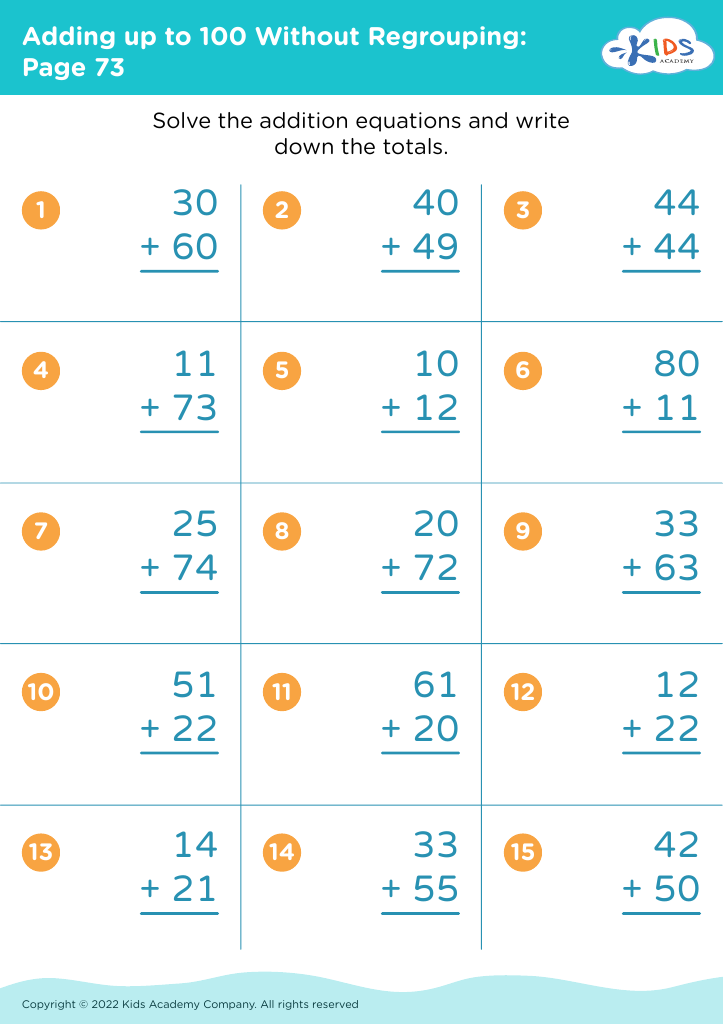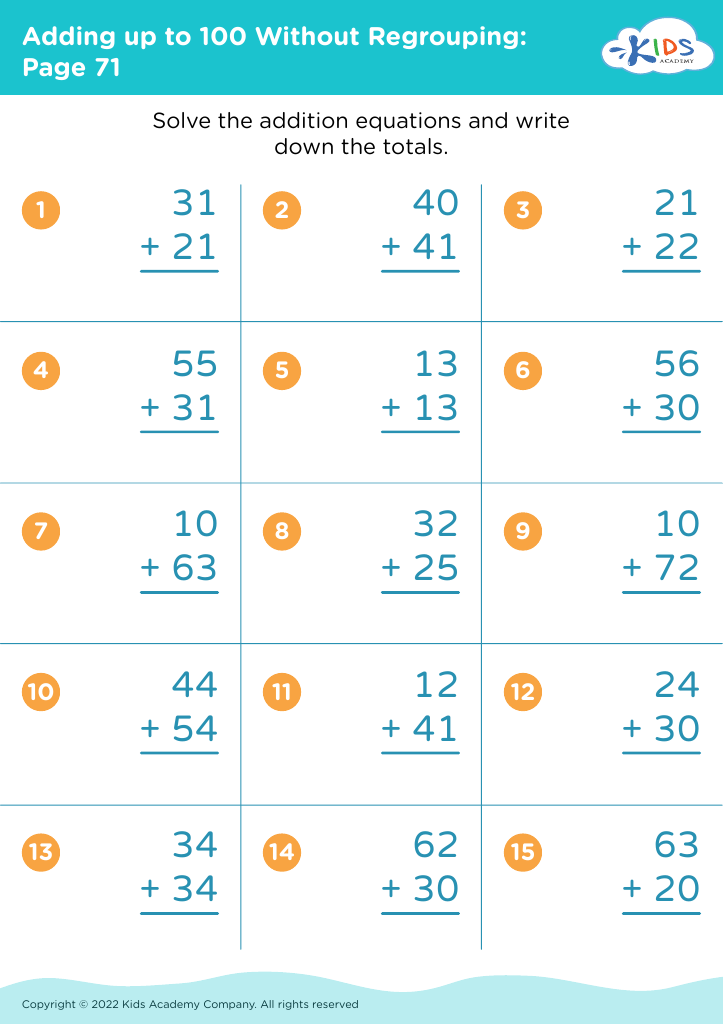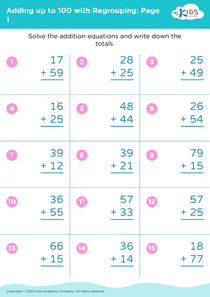Problem-Solving Skills Adding up to 100 Without Regrouping Worksheets for Ages 3-7
10 filtered results
-
From - To
Unlock your child's potential with our "Problem-Solving Skills Adding Up to 100 Without Regrouping Worksheets" designed specifically for ages 3-7. These engaging worksheets help young learners master addition while developing critical problem-solving skills. By working on various exercises, children will practice adding numbers up to 100 without regrouping, building confidence and fluency in math. These activities foster logical thinking and enhance cognitive abilities essential for future learning. Available for easy download and print, our worksheets provide endless opportunities for interactive learning and fun practice at home or in the classroom. Engage your child in this exciting journey of math discovery today!
Problem-solving skills, particularly in foundational arithmetic like adding up to 100 without regrouping, are crucial for children aged 3-7 for several reasons. First, these skills foundationally support mathematical understanding. By mastering simple addition, children develop confidence in their ability to solve problems, enhancing their persistence and resilience when faced with challenges.
Furthermore, strong problem-solving skills promote logical thinking and reasoning abilities. As children navigate different ways to combine numbers, they learn to analyze, visualize, and manipulate numerical information, skills essential in later academic pursuits. Encouraging exploration through addition helps foster critical thinking, as children figure out various combinations that result in the same sum.
Additionally, these early math skills are not solely about numeracy; they intertwine with everyday life skills. For instance, understanding how to group items or divide portions impacts their ability to handle money concepts or share effectively.
By focusing on this aspect of their learning, parents and teachers provide children with the tools to succeed not just in math, but in developing a mindset geared towards exploration and innovative problem-solving across all disciplines. Encouraging these essential skills during early childhood sets the foundation for lifelong learning and adaptability.























